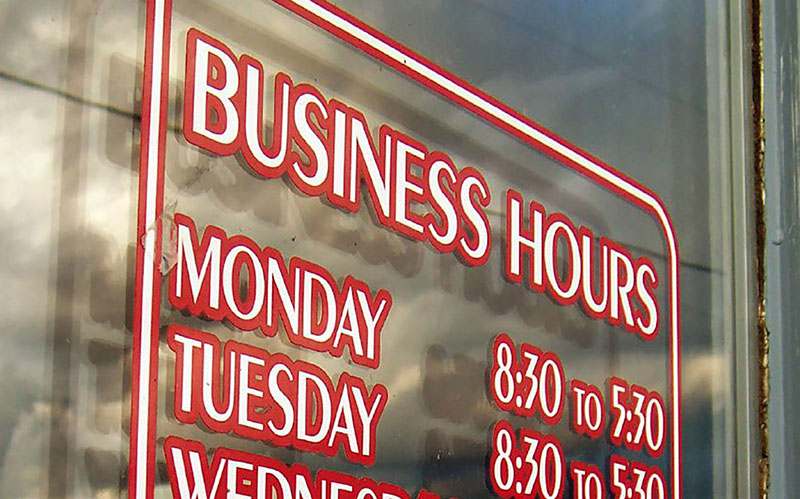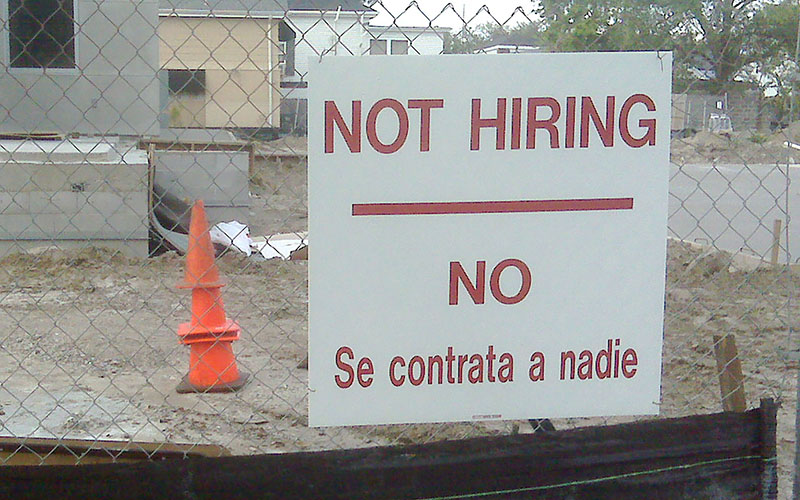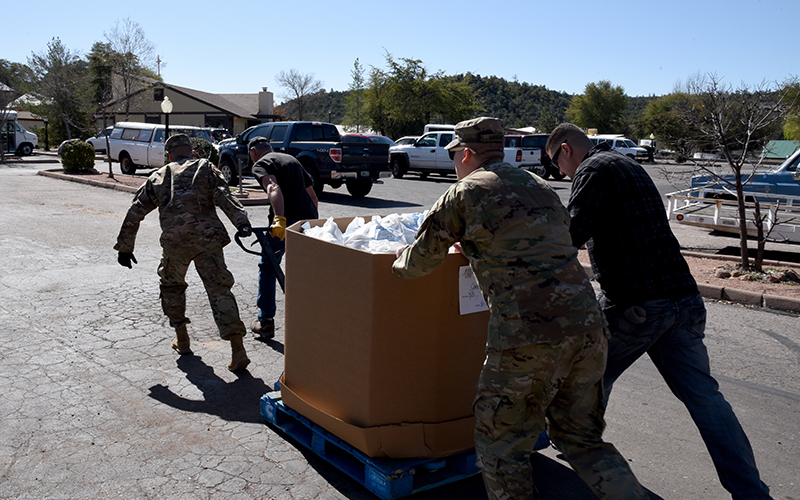WASHINGTON – While Congress and the White House are promising to add billions to the Paycheck Protection Program, some small businesses say they are just trying to hang on long enough to get the money there now.
Advocates say overwhelming demand and confusion have delayed disbursement of the $349 billion in loans made available last Friday under the program aimed to help businesses suffering as a result of coronavirus lockdowns.
Small Business Administration officials have acknowledged that complicated policies, a surge of applications and the “newness” of the program made for a bumpy roll out. One SBA official In Arizona said while she doesn’t “have a crystal ball,” she expects the system to stabilize in the coming days.
But business owners say they are running out of time.
“I’ve talked to restaurant owners that really can?t continue to pay employees for no more than two weeks,” said Chad Heinrich, the Arizona state director of the National Federation of Independent Business.
“I’m afraid that there’s probably a portion of businesses that have already decided to permanently close their doors because of the delays,” Heinrich said.
As of Friday afternoon, more than a half-million applications had been submitted nationwide and $130 billion had been approved, the SBA said. While that might be seen as a measure of success, one business leader said it is a cause of concern for businesses that have not received a loan and are watching the funds dwindle.
The PPP was part of a $2 trillion relief package – the Coronavirus Aid, Relief and Economic Security Act – enacted last month to prop up an economy stunted by COVID-19. The paycheck program will dole out $349 billion to small business owners through participating banks.
The program was rushed into operation, with rules for loans being written in just a week after President Donald Trump signed the CARES Act into law, and still being rewritten right up until the eve of the program’s start.
“Once the program launched on Friday (April 3) and over the weekend the banks just got slammed with applications,” said Mike Huckins, vice president of public affairs at the Greater Phoenix Chamber. “Between the banking industry and the SBA getting on the same page to get the funding out to the businesses, it’s taking a little longer than folks would’ve liked.”
Small businesses across the country have flooded banks with calls and online applications for loans, which the government will forgive if the business owner can show the money was used to keep workers on the payroll.
A report Thursday by the NFIB found that 70% of 884 small business owners it surveyed said they had tried to apply for a PPP loan “with varying degrees of success.” The survey found 28% of respondents said they were unsuccessful when trying to apply for the loan.
Shivani Dubey, the deputy district director of SBA Arizona, noted Friday that there were “so many moving parts” to the program that have contributed to delays.
“Everybody has to understand what they’re applying for, how they’re applying for it, getting the lenders on board and up to speed with all the parameters and the systems, the rules, the policies and also getting the pieces to get the loan to fund and get the money in people?s hands,” Dubey said. ?It’s just a lot of pieces to the puzzle.”
She expects the kinks will be worked out in the coming days. Huckins agreed that the system will probably look better soon, but he said every day is life or death for some businesses.
“In this situation every day is crucial,” Huckins said. “The longer it takes for businesses to get the money is another day that they are struggling.”
Congress and the White House are working to add another $251 billion to the program, boosting the total available funding for the program to $600 billion. The Senate was unable to approve a bill this week, but could act as soon as Monday.
Meanwhile, business owners can just watch and wait.
“That’s a big concern, I?ve heard some estimates that the money may run out as soon as maybe the middle of next week,” Huckins said.
“We are pushing to support that as fast as possible,” Huckins said. “We hate to see the politics of things get tied up in that process.”



